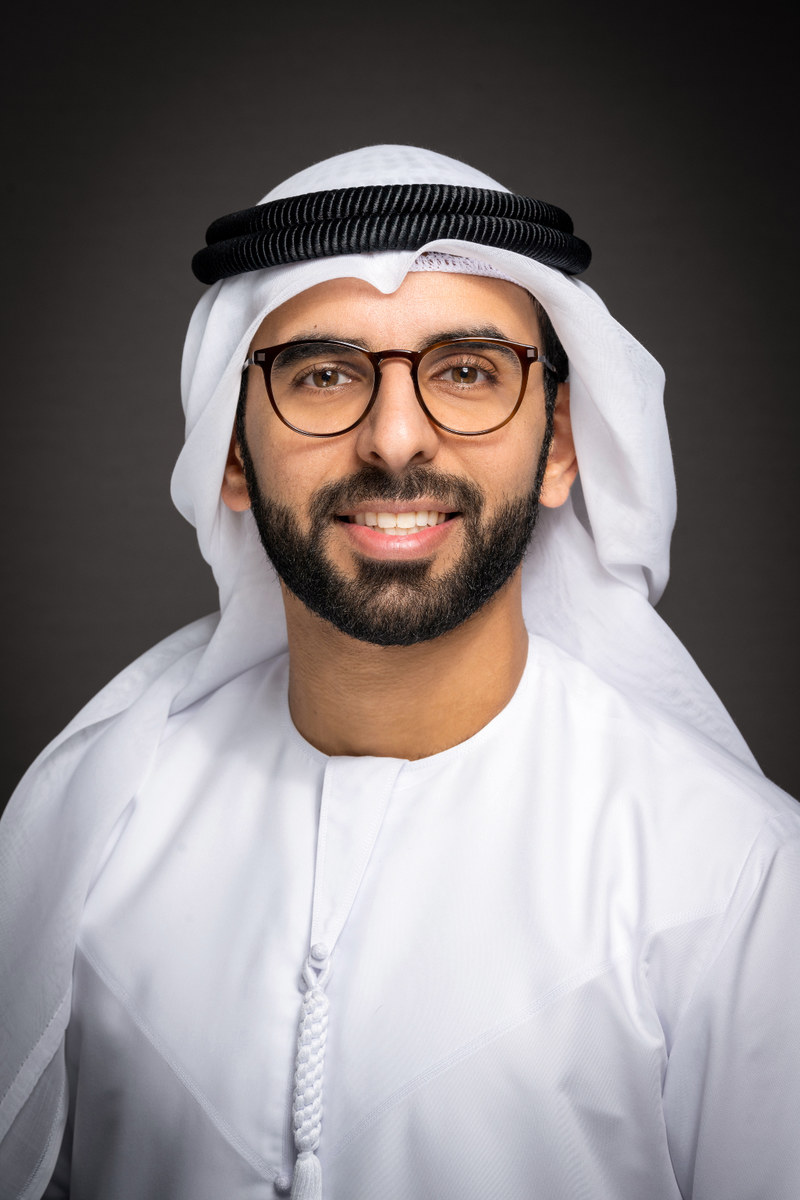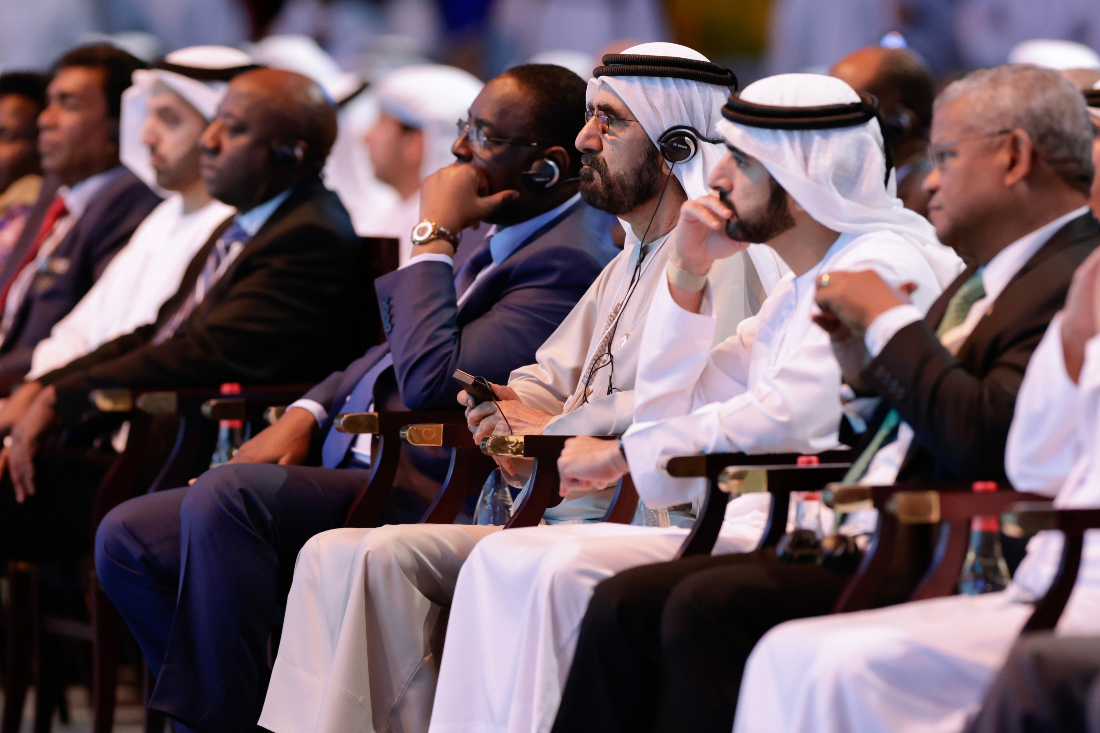DUBAI: This year’s World Governments Summit will present world leaders and delegates with a unique opportunity to combine efforts and address ongoing challenges amid rising regional tensions, organizers said ahead of the mega-event.
The three-day summit, set to kick off in Dubai on Monday, will bring together 25 world leaders and heads of state, 120 governmental delegations, more than 85 international and regional organizations and institutions, and distinguished thought leaders and experts.
The participants will tackle pressing issues facing humanity across different fields, including economy, technology, artificial intelligence, sustainability, finance and education.
Mohamed Yousef Al-Sharhan, deputy managing director of the WGS Organization, told Arab News that the 2024 summit offers an “exceptional global opportunity” to develop inventive solutions for the “challenges and changes facing the world, including recent conflicts experienced across regional and global arenas.”
He said since its inception, the WGS has served as the most significant global platform for world leaders, policymakers, experts, and officials from government and private sectors to exchange expertise and knowledge, as well as discuss pressing global challenges.

Mohamed Al-Sharhan, deputy managing director of the WGS Organization, said the summit aims to bring leaders together to address challenges. (Supplied)
This year’s event comes amid escalating geopolitical tensions in the Middle East since Israel’s war on Gaza broke out, killing more than 27,000 Palestinians — mostly women and children — and bringing a new set of health, educational and developmental challenges.
In a statement to Arab News, Nasser Saidi, former chief economist and strategist at the Dubai International Financial Centre, and former minister and first vice governor of the Central Bank of Lebanon, named three major challenges facing governments as they meet at the WGS: the growing visible consequences and risks of climate change, the accelerated growth of the digital economy due to the implications of using AI and related technologies, and the “New Cold War” resulting from growing fragmentation and deglobalization as the US, the EU and their allies decouple from China amid geopolitical conflicts and turmoil.
“Each of these challenges is greater for developing and poor countries,” said Saidi.
A growing multipolar world is evident in governments’ policies that are leading to increased economic and financial fragmentation.
The number of global trade restrictions introduced each year has nearly tripled since the pre-pandemic period, reaching almost 3,000 last year, according to the International Monetary Fund.
This “New Cold War,” Saidi said, could result in a 7 percent loss of global gross domestic product according to the IMF, due to global supply chains becoming less efficient, and inward-looking, self-sufficiency policies being disguised as restrictions on access to tech and critical resources.
“It will be strategically important for the governments meeting at the WGS to rapidly mitigate the risks of a New Cold War and its potential consequences, including growing strategic and military confrontations,” he added.
The growing climate divide and rapid growth of AI will also affect economies, societies, politics and militaries, and lead to greater degrees of inequality within countries.
“AI magnifies the risks of under-investment in the digital economy, and the growing digital divide between advanced economies and developing countries unable to invest in digital technologies and educate their populations for the digital economy,” said Saidi.
The investments required for climate adaptation to make infrastructure services resilient will also be costly for developing countries, requiring governments to partner with the private sector, which will have to provide 80 percent or more of the financing.
“Along with the growing use of robotics, AI will have profound implications for how governments are organized, and how they will deliver goods and services in general, let alone re-educating and retraining their workforce,” said Saidi.

The World Governments Summit is set to welcome more than 4,000 attendees this year. (Supplied)
Held under the theme “Shaping Future Governments,” the summit will host over 200 prominent speakers — including presidents, prime ministers and experts — who will share their insights in keynote speeches and panel discussions, alongside 23 ministerial meetings and executive sessions welcoming over 300 ministers.
The mega-event covers six main themes through 15 global forums and over 110 interactive dialogues and sessions. It is set to welcome more than 4,000 attendees.
Guests of honor
Headlining this year’s event, taking place until Feb. 14, are leaders from Qatar, Turkiye and India as the guests of honor.
Indian Prime Minister Narendra Modi, Turkish President Recep Tayyip Erdogan and Qatar’s Prime Minister Sheikh Mohammed bin Abdulrahman Al-Thani will be among 25 world leaders and heads of state attending the summit.
Al-Shahran said the choice of Turkiye, India and Qatar as this year’s guests of honor is aimed at highlighting exceptional examples of advancement and progress across diverse domains including economy, technology and education.
The summit, he said, will provide these nations with a platform to share their insights and best practices with the global community.
“The WGS seeks to illuminate exemplary success stories that serve as global benchmarks, with Qatar, Turkiye and India emerging as standout examples of economic transformation in recent times,” he added.
“Their remarkable progress not only underscores their individual achievements, but also highlights the broader potential for growth and development across various regions.”
The three nations’ participation, Al-Shahran said, solidifies the summit’s status as the foremost global initiative dedicated to examining exemplary practices and facilitating knowledge exchange.
“Our aim is to achieve the main objectives of the World Governments Summit, foremost among which is to promote collaboration and learning on a global scale, as well as fostering a more interconnected and prosperous future for all,” he added.
Arab ministers
The WGS 2024 will witness the participation of more than 100 ministers from Arab countries, including speakers such as the prime ministers of Egypt, Libya, Iraq and Iraqi Kurdistan.
Arab League Secretary-General Ahmed Aboul Gheit and Gulf Cooperation Council Secretary-General Jasem Mohamed Albudaiwi will also be among the attendees.
Representatives of international organizations such as the UN, the World Bank, the IMF and the World Health Organization, alongside technology leaders from the private sector, will address current and future global challenges and forge solutions for a more developed, prosperous and secure future across various sectors.
Ajay Banga, president of the World Bank Group, Kristalina Georgieva, managing director of the IMF, Dr. Tedros Adhanom Ghebreyesus, director general of WHO, and Rafael Mariano Grossi, director general of the International Atomic Energy Agency, are among the main attendees.
The ministerial meetings taking place on the summit’s sidelines will include those for Arab finance ministers; energy ministers; justice ministers; government development ministers during the Arab Government Administration Forum; and Arab youth and sports ministers.
The summit will also see leaders from the private sector, including OpenAI CEO Sam Altman, Airbus CEO Guillaume Faury, Schmidt Futures co-founder and former Google CEO Eric Schmidt, and Yann LeCun, vice president and chief AI scientist at Meta.
African leaders will also receive a platform at the WGS, with a main session for Rwanda’s president, and a plenary discussion bringing together the presidents of Madagascar, the Maldives, Mauritius and the Seychelles.
A dialogue will take place between Nobel Laureates Michael Levitt and Sir Richard J. Robert, who are among eight Nobel Prize winners to attend the summit.































